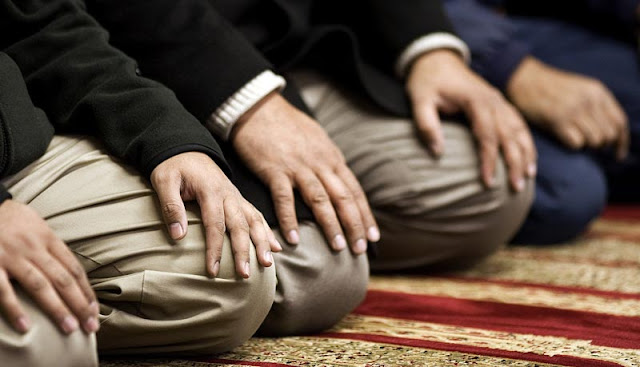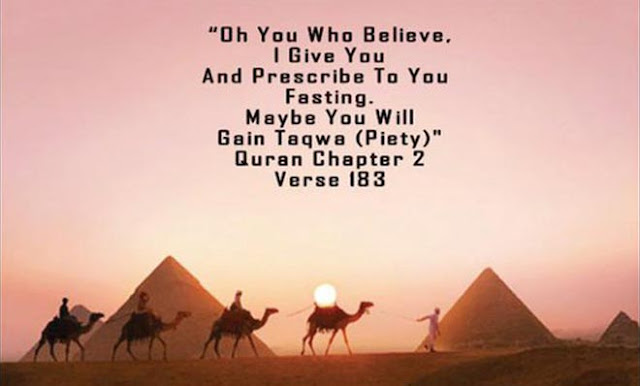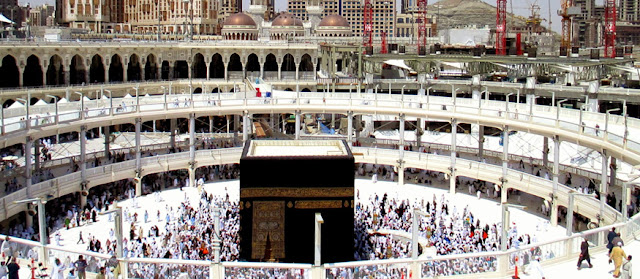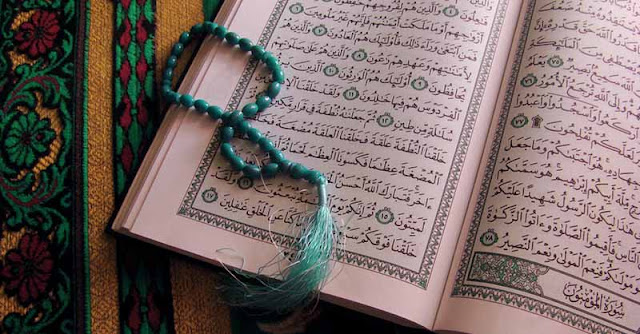Islamic structure has a solid foundation just like every sound structure have a solid foundation in order to remain strong. Islam’s solid foundation is the five pillars, forming the basis of Islamic teaching as taught by Prophet Muhammad (SAW). The Five Pillars of Islam are the five obligations that every Muslim must satisfy in order to live a great and responsible life according to Islam.

The Five Pillars of Islam enclose the basic moral obligations for Muslims which we all should follow and act upon them. Those who inspect the basics of Islam are usually told about the “Five Pillars” of the religion Islam. These five pillars of Islam have the great impact on Muslim’s life.
Now we will discuss these five pillars of Islam in detail about their importance, benefits and how they affect the Muslim’s life.
(1)
(3)
The five pillars of Islam have been prescribed by Allah, and a Muslim is required to believe and act according to them. They are practical as well as easy, and the blessings and wisdom behind them are multiple. Carrying out the Five Pillars demonstrates that the Muslims are putting their faith first, and not just trying to fit it in around their worldly lives. These five pillars provide the solid structure for the betterment and success of all humanity. It’s obligatory on us (Muslims) to practice these in our lives for getting benefits in this life and the Hereafter.

The Five Pillars of Islam enclose the basic moral obligations for Muslims which we all should follow and act upon them. Those who inspect the basics of Islam are usually told about the “Five Pillars” of the religion Islam. These five pillars of Islam have the great impact on Muslim’s life.
- Islam is built upon the Five Pillars of Islam which are as follows:
- The Declaration of Faith (Shahadah)
- Salah (Establishing regular Prayers)
- Zakat (Paying charity)
- Sawm (Fasting in the month of Ramadan)
- Hajj
Now we will discuss these five pillars of Islam in detail about their importance, benefits and how they affect the Muslim’s life.
(1)
- Shahadah: The first pillar of Islam is the confession of faith; there is no God but Allah and Muhammad (SAW) is His last Prophet. Under this pillar, all other obligations are incorporated, for to believe in Allah and Muhammad (SAW) as His Prophet is to obey their teachings and the example of Muhammad’s life. We can also say that sincerely reciting the Muslim undertaking of faith is Shahadah. It must be based on a sincere and firm belief from the heart, as well as being expressed verbally. The declaration of the first pillar has two parts; the first part of the declaration signifies that no person, object or vitality has the right to be worshipped except Allah alone. Allah alone has the power over all things because He is the only Creator and Sustainer of all that exists in this world. Allah has no partner without any doubt. The second part of the declaration is that Muhammad (SAW) is Allah’s final Messenger. He is the last and final Prophet in a long chain of Prophets sent to call the people to the obedience and worship of Allah alone.
(2)
- Salah: The second pillar is prayer (Salah). Muslims are expected to engage in prayer five times a day, facing Mecca. Prayer provides a pattern of Muslim life. Muslims hope to please Allah by remembering him constantly by offering prayer regularly. Salah is basically performing practice prayers in a proper way five times daily. In Quran Allah Almighty says: “Indeed, I am Allah! There is none worthy of worship but I, so worship Me and offer the prayer for My remembrance” (Quran 20:14). Our beloved Prophet Muhammad (SAW) said: “Prayer is a pillar of the religion (Islam). Whoever establishes it, establishes a religion; and whoever destroys it (neglects it), destroys religion.” So we can say it is obligatory on every Muslim to offer prayer five times a day for the sake of Almighty Allah and also if you want to complete your faith. After Shahadah, it is the most important pillar of Islam.
- Prayer establishes a personal and spiritual connection between the Muslim and his Creator based on faith and love
- It will have an enduring effect on the person, filling his heart with contentment, peace, and closeness with Allah
- Through prayer, Muslim remembers the greatness of his Creator and supplicates to Him for his needs and wishes
- Repeatedly humbling oneself before Allah prevents a person from falling into sin
- Salah is the type of purification for one’s soul
- Salah is an opportunity for repentance and seeking forgiveness from Allah
Benefits of Salah
(3)
- Zakat: Zakat is paying an alms (or charity) to benefit the poor and the needy people for the sake of Almighty Allah. The meaning of the word “Zakat”, is both ‘purification’ and ‘growth’. Muslims are required to give at least 2.5 percent of their annual capital to the poor, either directly or through Muslim charitable organizations. Giving to the poor is intended to achieve a generous lifestyle and a sense of caring for the Muslim community, especially those lacking physical and financial means. We as a Muslim believe that if we give poor or needy people from our income and wealth then we will become trustworthy to Almighty Allah. As Allah (SWT) mentioned in Holy Quran: “Those who establish the prayer (Salah) and give the charity (Zakat) these are the ones who will prosper” (Quran, 31:4-5). The Prophet (PBUH) said: “Allah has made Zakat obligatory simply to purify your remaining wealth.” By fulfilling this obligation, Muslims purify their remaining wealth, as well as ensure both financial and spiritual growth.
Benefits of Paying Zakat
- Purify one’s heart from greediness, selfishness, and arrogance
- Made people be sympathetic and compassionate towards needy and poor
- Reminds blessings of Allah and encourage to be grateful to Almighty Allah
- Reduce poverty from society and balance the gap between different socio-economic classes and groups.
If someone wants to give more than specified that is 2.5 percent then he can give if he has a will to do more for needy people for pleasing Almighty Allah.
(4)
- Sawm: Sawm is fasting during the month of Ramadan for Almighty Allah because it is the Holy month of Allah. Fasting involves refraining from such things as food, tobacco, and sexual relations during daylight hours. One should also abstain from all sinful actions. These periods of fasting are to encourage and enable Muslims to develop self-control, to oppress bad habits, and to refocus their minds towards personal spiritual progress. Allah Almighty said in the Holy Quran:”Fasting is prescribed for you as it was prescribed for those before you, that you may attain piety” (Quran, 2:183). As with any act of worship, fasting requires obedience and submission to Allah’s commands through the highest degree of commitment and sincerity. Fasting during Ramadan is obligatory on every physically and mentally capable adult Muslim. Children, the sick, the mentally unfit, the elderly, menstruating women, and travelers are privileged.
Benefits of Fasting
- Promotes self-purification and spiritual growth
- Fasting has health benefits it is proven scientifically
- Forgiveness of sins
- Purifies the soul and helps it acquire obeying Almighty Allah by restraining desires, and promotes steadfastness
- Create awareness about the state of affairs across the globe and the hardships encounter
- Fasting is a mean of learning self-restraint and patience
(5)
- Hajj: The fifth pillar is Pilgrimage. All Muslims are expected to make a pilgrimage to Mecca at least once in their lifetime if their finances and health grant. During the pilgrimage, Muslims dress in white garments and remove all indicators of status or class. This practice is intended to help Muslims recognize that before Allah they are all equal. Racial, gender and economic differences are subdued as commonalty of Muslims from many nations bow together to worship Allah. Performing the pilgrimage is a temporary suspension of all worldly activities, and is a time for one to reflect, worship, seek the forgiveness of Allah and attain His closeness. In Holy Quran Allah (SWT) says: “And Hajj (pilgrimage to Makah) to the House (Kabah) is a duty that mankind owes to Allah, for those who can afford the expenses (for one’s transportation, provision, and residence)” (Quran, 3:97). This great act of worship consists of many components including sacrificing an animal, supplicating, visiting and praying at various sites, circling the Kabah, walking between two mountains, as well as many other rituals, all of which are performed over a period of 6 continuous days. During Hajj Brotherhood is increased, as is the sense that all Muslims, regardless of their differences, are one nation.
If you are planning for Hajj or Umrah this year, then contact us because of British Haj Travel Ltd is one of the leading Hajj and Umrah travel agency company in the UK. We have the huge range of Hajj packages and Umrah packages with all inclusive facilities. Call us for further details at ***0203 9170 999***






